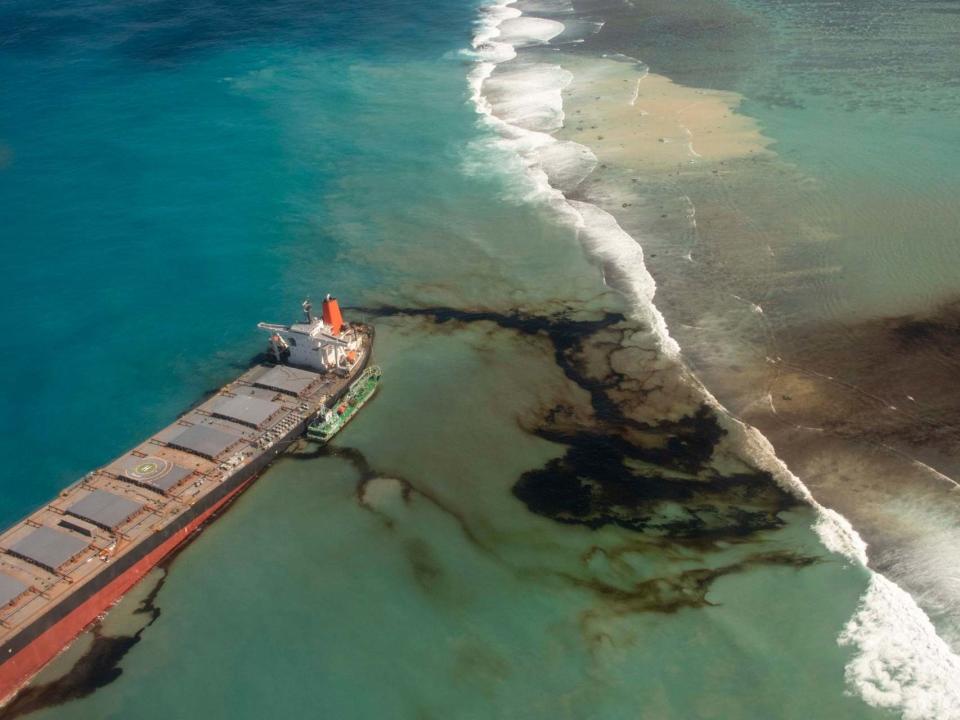Mauritius oil spill: Conservationists race to save rare species and warn 35 years of work ‘could go’

More than three decades of conservation work is at risk due to an oil spill caused by a crashed tanker off the coast of Mauritius.
The MV Wakashio, a Japanese vessel carrying 4,000 tonnes of fuel, collided with a coral reef in the Indian Ocean on 25 July.
Now wildlife experts on the island are warning that decades of work to protect endangered species could be reversed, as more than a quarter of the fuel has already gushed into the sea.
In particular danger is the Ile Aux Aigrette, an important conservation area just 2km from the crash zone.
“The fumes may impact all the birds and animals on the island and all the conservation work we’ve done over the last 35 years could be cast off like that,” Jean Hugues Gardenne, communications manager at the Mauritius Wildlife Foundation, told The Independent.
“We’ve been reintroducing endemic species like the Olive White Eye, the Pink Pigeon and the Mauritius Fody... all those species are currently threatened by the oil spill,” Mr Gardenne added.
Since the catastrophe began, the organisation has rushed to remove rare plant and animal species from the region, but the fuel has already reached protected islets to the North.
There are now fears oil will now seep deep into Ramsar wetlands – designated sites of of international importance – 3km away from the crash site, having already smothered many pristine Mauritius beaches.
Whilst the immediate clean-up is under way, supported by thousands of volunteers from across the island, long-term restoration is likely to require international cooperation.
“Currently we are being contacted by different companies from around the world who are proposing their support with chemical products, but we don’t really know what is good and what isn’t,” Mr Gardenne said.
An environmental disaster of this kind is unprecedented in Mauritius and so the foundation is requesting not only money from donators, but expertise.
Since the nation is dependent on its coasts for tourism and fishing, both knowledge and physical resources will be important for it to bounce back to normality.
Read more
Mauritius scrambles to save pristine beaches and coral reefs from cata

